30-Year Mortgage: Everything You Need to Know
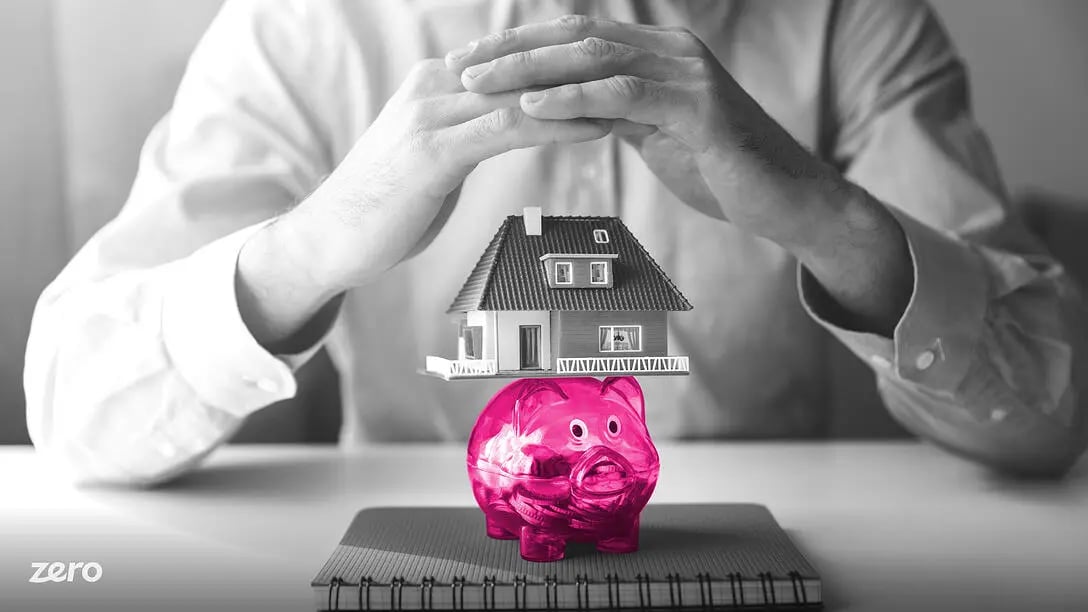
When you first set out to buy a home, it can feel like you’re taking an exam you forgot to study for. You have to make quick decisions that can have ramifications on your finances for years and years to come, and while you'll probably get no shortage of advice from friends and family, it can be a headache to make sense of all the information.
The type of mortgage you pick is one example of a crucial decision you’ll need to make.
In this article, we’ll talk about what it means to get a 30-year mortgage, how it differs from a 15-year mortgage, why you might want to consider paying off your mortgage early, and more.
Read our complete beginner's guide to buying a house here.
What Is the Definition of a 30-Year Mortgage?
30-year mortgage, 15-year mortgage, fixed-rate, adjustable-rate—as you’re in the process of buying a house or researching the home buying process, you’ll hear a lot of terms being used to describe home mortgages. A 30-year mortgage is one example of a common term and mortgage type.
A 30-year mortgage is a loan that will be paid off completely in 30 years if you make every payment as scheduled over a 30-year payback timeline. Each month you’ll pay a mortgage payment that comprises a mix of principal (the amount of money you borrowgoasdfasdfsadfed), interest, and if you escrow, insurance, and taxes. If you opt for a fixed-rate home loan, your total payment amount and interest rate will remain constant throughout the loan. Keep in mind, however, that if escrow for taxes and insurance are taken as part of the payment, it can vary especially considering property taxes tend to increase every year.
Generally, if you put 30- and 15-year mortgages side-by-side, the 30-year mortgage will look like a better deal upfront since your monthly payment will likely be lower. However, smaller payments in the short term can also mean a hefty amount of additional interest paid in the long term.
The Mechanics of a 30-Year Mortgage
Let's unpack what a 30-year mortgage means and how it works.
First, the monthly payments will likely be lower than a mortgage with a shorter term, like a 15-year. Second, longer loan terms mean you’ll pay more interest - often much more. Third, when you pay your mortgage payment on a 30-year loan each month, not all of your money will actually go toward paying off the principle of the loan; at first, very little of it is. We’ll discuss each one of those in a little more depth:
- Lower payments: Many people opt for a 30-year mortgage because the monthly payments are less—sometimes by a considerable amount—than mortgages with shorter terms. Especially after dropping a large amount of money on a down payment, this lower monthly payment can be attractive. Depending on the situation, lower payments can free you up to make smart financial decisions with the extra money. For example, if you were to invest the difference between a 15-year monthly payment and a 30-year monthly payment, you could make enough money to outweigh the cost of additional interest. However, most people will choose to spend that money instead.
- More interest: There’s a tradeoff for the lower monthly payment that a 30-year mortgage affords you: more interest paid over the duration of the loan. For a loan of the same amount and interest rate, the total interest paid could be over twice as much on a 30-year home loan compared to one with a 15-year term. This is, of course, if you completed all the payments on a loan and didn't move before it was paid off.
- Mortgage payment breakdown: It can be a hard realization when you find out that much of your mortgage payment isn’t actually paying down the money you own on your house. Mortgage payments contain four key elements: principal, interest, taxes, and insurance—also referred to as PITI. At the beginning of your mortgage, you will pay more interest than principal. Over time as the outstanding amount on your house goes down, you’ll eventually pay more principal than interest, though the amount of your mortgage payment will remain constant.
30-Year Term vs. 15-Year Term
For some of the reasons we discussed above, namely, less interest over the length of the loan, 15-year mortgages are growing in popularity—but are they right for you? We’ll compare and contrast the two loan types below.
- The cost of interest: If you complete the entire loan term, you'll spend less in interest on a 15-year home loan than you would on a 30-year loan.
- Monthly payments: Your monthly payment will be higher with a 15-year loan because you’re paying off the cost of your house in an accelerated time frame. If you’re not in the financial place to handle the extra cost, a higher payment could be taxing.
- Interest rates: Wondering what are 30-year mortgage rates? The actual interest rate on a 15-year mortgage tends to be lower than 30-year mortgage rates since you’re not as risky to the lender if you opt for a shorter term.
- Total home price: With a 30-year mortgage, you might be able to afford more house than would be possible with a 15-year mortgage since the payments are less every month spread out over more time.
- Home equity: Since you’re putting more money toward the principal of your house in a 15-year mortgage, you’ll accumulate more equity in it faster. If you want to take a loan out on the value of your house later, this can be beneficial.
The Pros & Cons of a 30-Year Mortgage
You’ve probably realized this by now, but there’s not always a clear-cut answer as to what type of mortgage you should choose. A 30-year mortgage might be right for you, but it comes with its own set of pros and cons.
The Pros
First, let’s discuss the reasons a 30-year mortgage can make smart financial sense:
- Your monthly payments will be lower, meaning you can invest that extra money now.
- If you have a fixed-rate mortgage, your payments will stay the same for the time span of the loan.
- You can get the pricier house of your dreams because each individual monthly payment is lower.
- Life changes fast. If something changes with your financial situation, such as a job loss, you won’t be responsible for a potentially higher monthly payment you’d have with a 15-year mortgage.
- If you choose, you can still pay down your mortgage balance faster by putting extra money toward the principal each month. A 30-year mortgage could ultimately be a 20- or 15-year mortgage if you add enough extra payments.
The Cons
So what about the downsides of a 30-year mortgage? We’ve already alluded to several, but we’ll summarize them here:
- You may have a higher interest rate and a higher total interest amount to pay across the timespan of a 30-year loan.
- While you might be able to purchase a more expensive home on a 30-year mortgage, it doesn't mean you should buy one. Homes with a higher price tag can bring additional costs in the form of taxes, utilities, and more.
- With a 30-year loan, it will take longer to pay down the principal, meaning your equity won’t increase as quickly as it could with a shorter loan.
Is a 30-Year Mortgage Right for You?
More interest, but lower monthly payments. Slow equity accumulation, but you could get the house you really want. A 30-year mortgage has downsides, but it also has real benefits because it frees up your money in the short term. Also, a 30-year mortgage could end much quicker than planned if you make extra mortgage payments, which we’ll discuss next.
Can You Pay off Your 30-Year Mortgage Early?
You’ve probably seen bloggers, social media influencers, and financial consultants bringing up the idea of paying off your mortgage ahead of schedule. If you’re in the right financial situation, an early payoff can make sense. A mortgage payment is one of the largest and most regular financial burdens a person will ever commit to in their life. Paying off a mortgage and getting rid of a monthly payment can free you up to use your money in different ways or even become less reliant on a regular paycheck altogether.
That said, if you’re considering trying to pay down your mortgage faster, you should first attend to your savings and other debts. If you don’t already have around 3 to 6 months of income saved up in an emergency fund, you should divert any extra money toward building that up first before putting more money toward your house. Also, if you have any outstanding debts, such as student loans or credit card balances, it’s probably smart to tackle those first, as they may have even heftier interest rates than your home loan.
When you’ve covered those bases and ensured you’re able to contribute enough money to other important buckets such as your children’s education fund and your own retirement, you can consider diverting any extra money toward your mortgage. While you may see a lot of examples of extreme mortgage payoffs, you can add whatever amount of money works for you. Even an extra $100 per month will make a difference in the length of your loan.
One final caveat is that you should always ensure with your lender that there is no penalty for early payoff. The last thing you want to find out is that you have to pay a large fee just when you're about to eliminate your mortgage.
The Downside of Paying Your Mortgage Early
Paying off your mortgage early may sound amazing, but as we mentioned above, it’s not always the best choice. One of the most notable reasons experts cite is that you could, in theory, make better financial decisions with the extra money you'd be putting into your mortgage.
Many financial pros cite investing or contributing to retirement accounts as better uses of extra money due to the potential returns you could get. However, investing goes hand-in-hand with risk, and depending on the health of the market, you could end up losing money with this approach.
Another risky market is real estate. If you pay off the cost of your home before you need to but its value dips below what you paid for it, you could even lose money on your house if you tried to sell it.
Our Mortgage Learning Center features blogs on a wide range of mortgage and refinancing topics.
The Bottom Line
By now, the whole issue of 30-year vs. 15-year mortgages should be much clearer. Both methods have their pros and cons, and you should consider all the facts before you pick the one that’s right for you.
If you value lower payments so you can allocate your money to retirement, debt payoff, or an emergency fund and can handle potentially higher 30-year mortgage rates, a 30-year mortgage may be better for you. If you’re fine with higher monthly payments so you can pay off your mortgage faster and pay less interest overall, a 15-year mortgage may be the right choice.
Speak with a financial professional about both options to decide which method is better in light of your own personal financial situation.
Start Looking for the Home of Your Dreams Today!
This page last updated: October 11, 2022
Read more on this topic below.

When you buy a house and start making mortgage payments, your payment consists of four different components, known...

If you have gone through the pre-approval process but need to take a deeper dive into how much house to buy,...

The vast majority of mortgage loans require you to put down a certain percentage of the selling price upfront....

Whether you’re a first-time buyer or you’ve purchased a home before, you’ve likely heard of a homeowner’s association....

People buy their homes for a number of reasons. Affordability, stability, and comfort are some of the most...

Mortgage brokers play an integral and active role in the mortgage market, offering customers a service not made...
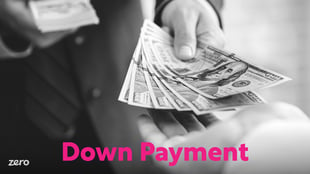
There’s a lot of expenses to keep in mind when you’re thinking about buying a home. Between the price of the home, property taxes, your mortgage...
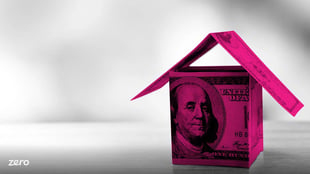
Conventional loans are mortgages offered by private lenders, banks, and institutions that are not backed by the government. Unlike FHA, USDA,...

Some homebuyers refuse to purchase a property if it is part of a property owner association. On the...

Research indicates that 58% of homeowners in HOA communities and single-family homes pay an average monthly fee...

Private mortgage insurance is something millions of homeowners pay for each year. However, this type of insurance does not protect
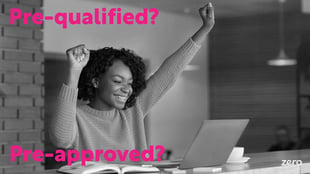
When looking to refinance or buy a house, the pre-qualified vs pre-approved mortgage debate can be...
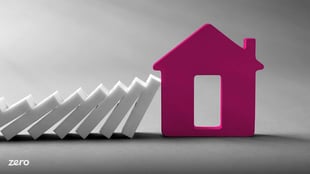
A home doesn’t just fall into foreclosure status. There are stages and processes that take place behind the scenes before...

It’s likely that your mortgage loan will be the largest loan you have during your lifetime. Mortgages are not a one size...

For many people, owning a home is part of the American dream. To make this dream a reality, most people will take out a...
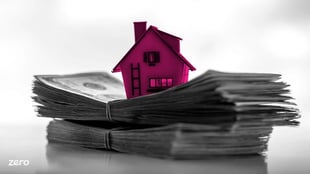
Whenever you’re looking to buy a house, you’ll quickly realize there are a lot of fees associated with obtaining a mortgage....
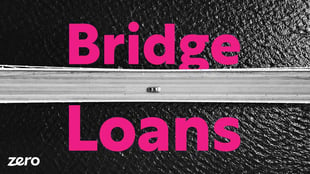
A bridge loan is a short-term loan a borrower may use while a more long-term financing contract is finalized. Bridge...

A loan estimate is crucial to obtain when looking for a loan. This estimate not only gives you the details of a mortgage but also compares offers...
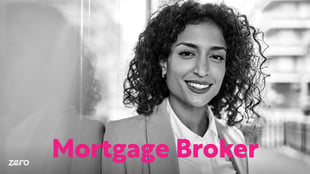
There are many moving parts and various people you’ll deal with throughout the homebuying process....

If you’re looking to buy a house, and do not have a mountain of cash saved up, you’ll need to consider getting a mortgage to help you finance this...

If you find a property that you’re highly interested in buying but are concerned that the seller might choose...
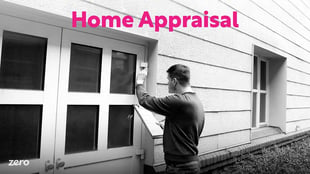
Buying a home? You’ll likely need to get it appraised before you receive the clear to close. If you’re wondering...

If you’re an active service member, a veteran, or the surviving spouse of a veteran, and you want to ...

There’s no doubt, COVID-19 changed the world in countless ways and took us all by surprise. From an...

Whenever you are borrowing money, whether it’s for a new mortgage, a refinance, credit card, or car loan, you’ll hear...

If you’re new to buying a home, you probably have quickly realized the overwhelming amount of options there...

If you’ve already gone through the lengthy process of writing offers, securing financing, and arranging inspections for your...

One of the most important steps to buying a home is deciding on a mortgage loan and deciding on a loan involves settling on a good...

First time home buyers are often surprised when they learn about all of the expenses that are associated with ...

Purchasing real estate is not as simple as finding the right home, submitting an offer, and signing the closing paperwork; many...
